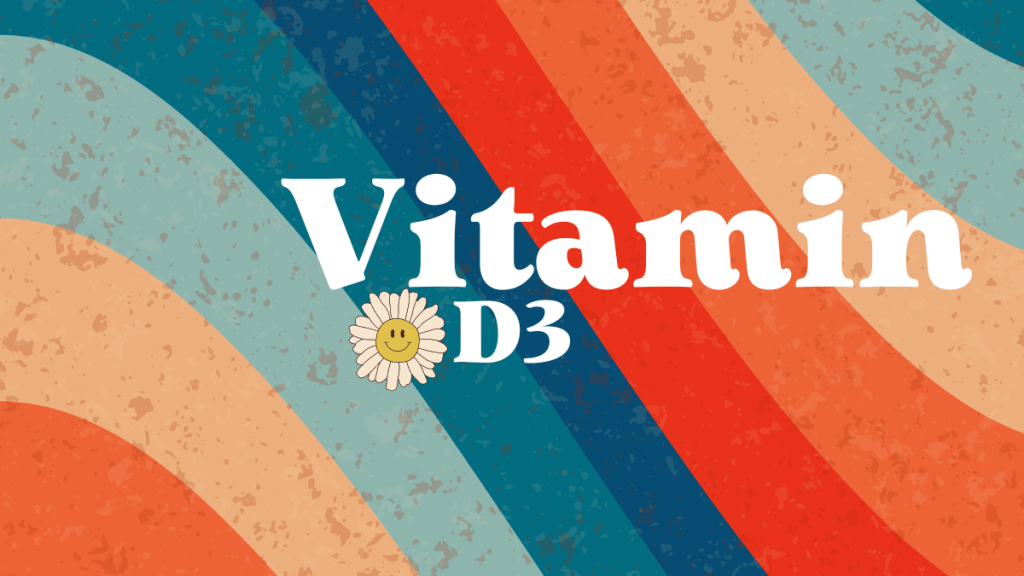In the realm of essential nutrients, vitamin D3 stands out as a star player due to its multifaceted benefits for human health. This remarkable compound, often referred to as the “sunshine vitamin,” plays a pivotal role in various bodily functions, ranging from bone health to immune system support. In this comprehensive guide, we will delve into the numerous advantages of vitamin D3 and explore why it’s considered a vital component of a balanced and healthy lifestyle.
The Importance of Vitamin D3
Understanding Vitamin D3
Vitamin D3, scientifically known as cholecalciferol, is a fat-soluble vitamin that the human body can synthesize when exposed to sunlight. It also occurs naturally in certain foods and can be obtained through dietary supplements. This essential nutrient plays a crucial role in regulating calcium and phosphorus levels in the body, contributing to the maintenance of healthy bones and teeth.
Boosting Bone Health
One of the primary benefits of vitamin D3 is its role in promoting optimal bone health. It works in tandem with calcium to enhance the absorption of this mineral in the intestines, ensuring proper bone mineralization. Sufficient vitamin D3 intake can help prevent conditions like osteoporosis and reduce the risk of fractures, especially in older individuals.
Strengthening the Immune System
Emerging research suggests that vitamin D3 plays a pivotal role in supporting the immune system. It is believed to modulate immune responses and promote the production of antimicrobial peptides that help the body fight off infections. Adequate vitamin D3 levels have been associated with reduced susceptibility to various infections and autoimmune diseases.
The Benefits of Vitamin D3 for Specific Health Conditions
Vitamin D3 and Heart Health
Recent studies have also highlighted the potential benefits of vitamin D3 for cardiovascular health. Adequate levels of this vitamin are linked to a lower risk of heart disease, as it may help regulate blood pressure, reduce inflammation, and enhance overall vascular function.
Vitamin D3 and Mood Regulation
Beyond physical health, vitamin D3 may also play a role in mood regulation. Some research suggests that low vitamin D3 levels are associated with an increased risk of depression and other mood disorders. Ensuring sufficient intake of vitamin D3 could contribute to improved mental well-being.
Vitamin D3 and Diabetes Management
There is growing interest in the relationship between vitamin D3 and diabetes management. Studies suggest that adequate vitamin D3 levels might enhance insulin sensitivity and improve glycemic control in individuals with type 2 diabetes.
Sources of Vitamin D3
Sunlight Exposure
The most natural source of vitamin D3 is sunlight. When the skin is exposed to ultraviolet B (UVB) rays, a precursor molecule is converted into vitamin D3. Spending time outdoors, especially during sunny days, can help boost vitamin D3 production in the body.
Dietary Sources
Vitamin D3 can also be obtained through dietary sources, although it’s relatively challenging to acquire sufficient amounts solely from food. Fatty fish like salmon and mackerel, fortified dairy products, and egg yolks are some examples of foods that contain vitamin D3.
Supplements
When natural sources are limited, dietary supplements can provide an effective way to ensure adequate vitamin D3 intake. These supplements are available in various forms, including tablets, capsules, and liquid drops.
Conclusion
In conclusion, vitamin D3 is undeniably a powerhouse nutrient with a wide array of benefits for human health. From supporting bone health and bolstering the immune system to potentially influencing mood and diabetes management, its significance cannot be overstated. Whether through sunlight, dietary sources, or supplements, incorporating vitamin D3 into your lifestyle can contribute to a healthier and more vibrant you.
Frequently Asked Questions (FAQs)
Can I get enough vitamin D3 from sunlight alone?
While sunlight is a natural source of vitamin D3, factors like location, skin color, and sun protection practices can impact how much vitamin D3 your body produces. It’s often recommended to complement sunlight exposure with dietary sources or supplements.
What are the risks of vitamin D3 deficiency?
Vitamin D3 deficiency can lead to weakened bones, increased susceptibility to infections, and potential mood disturbances. It’s essential to maintain adequate levels of this vitamin to support overall health.
Can I take too much vitamin D3?
Excessive vitamin D3 intake can lead to toxicity, which may manifest as symptoms like nausea, vomiting, and excessive thirst. It’s important to follow recommended guidelines for vitamin D3 supplementation.
Are there any interactions between vitamin D3 and medications?
Vitamin D3 supplements can interact with certain medications, such as corticosteroids and weight loss drugs. If you’re taking any medications, it’s advisable to consult a healthcare professional before starting vitamin D3 supplementation.
How often should I have my vitamin D3 levels checked?
The frequency of vitamin D3 level checks can vary based on factors like age, health conditions, and sun exposure. Consulting a healthcare provider can help determine the appropriate timing for such tests.

